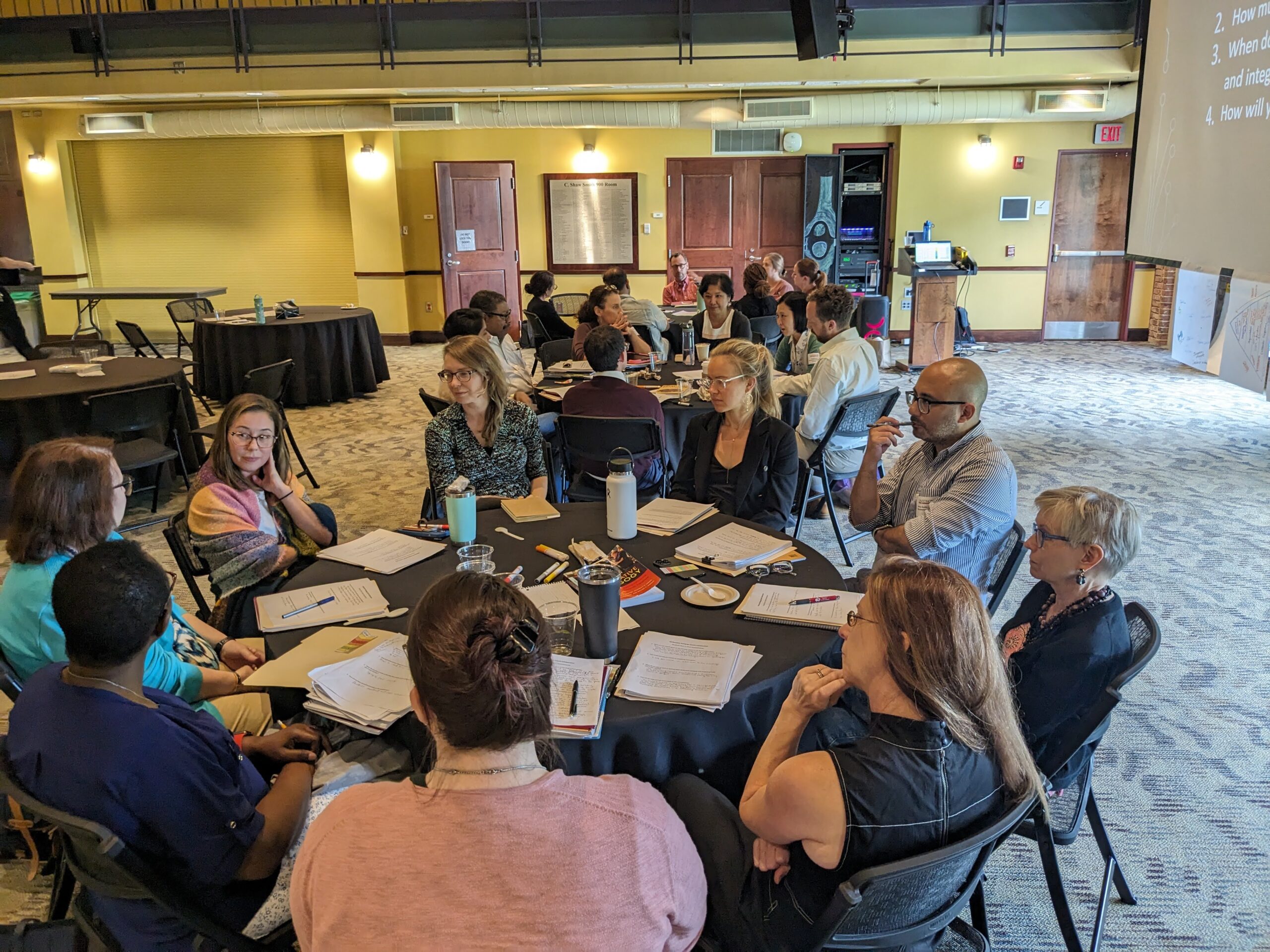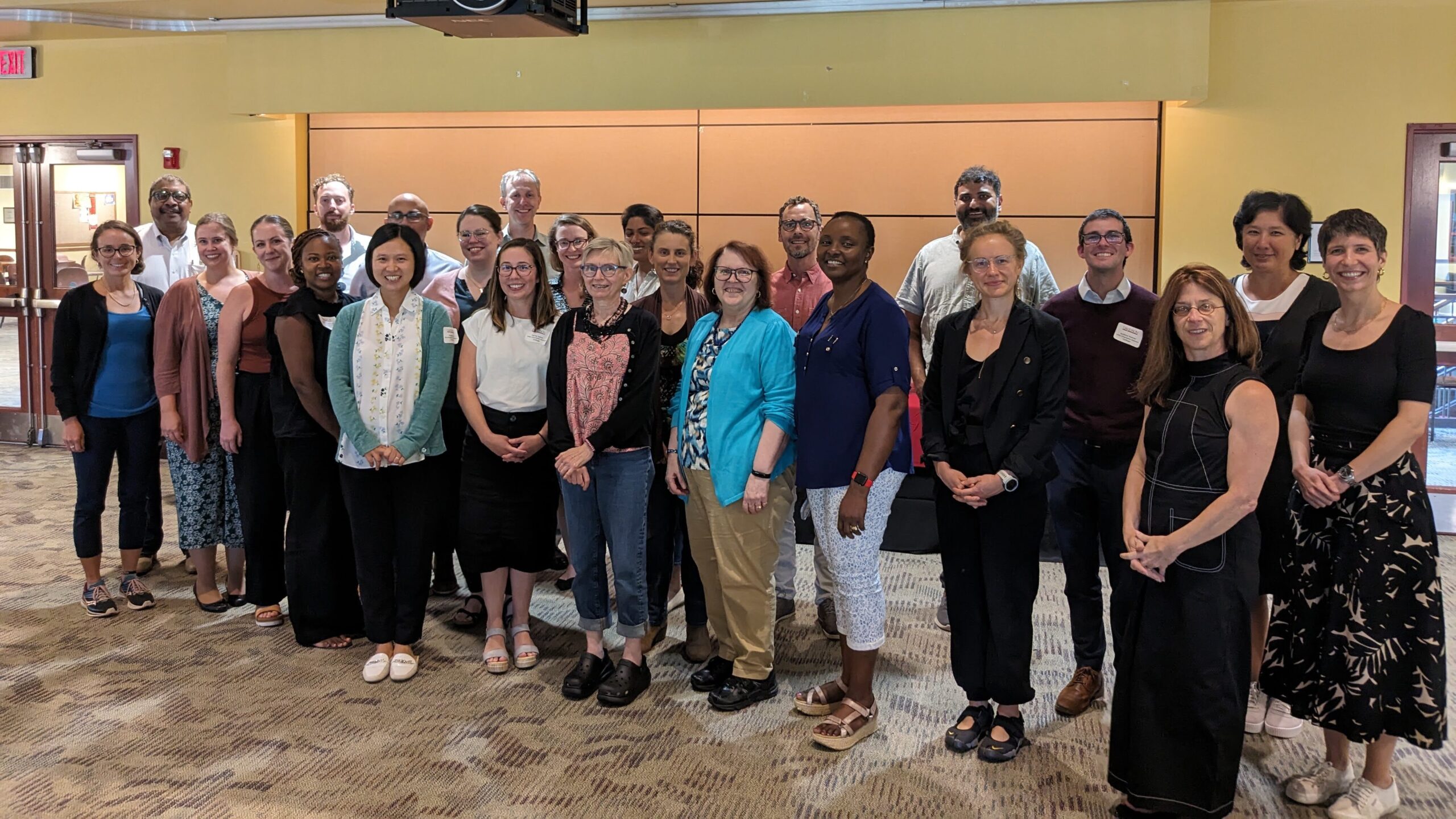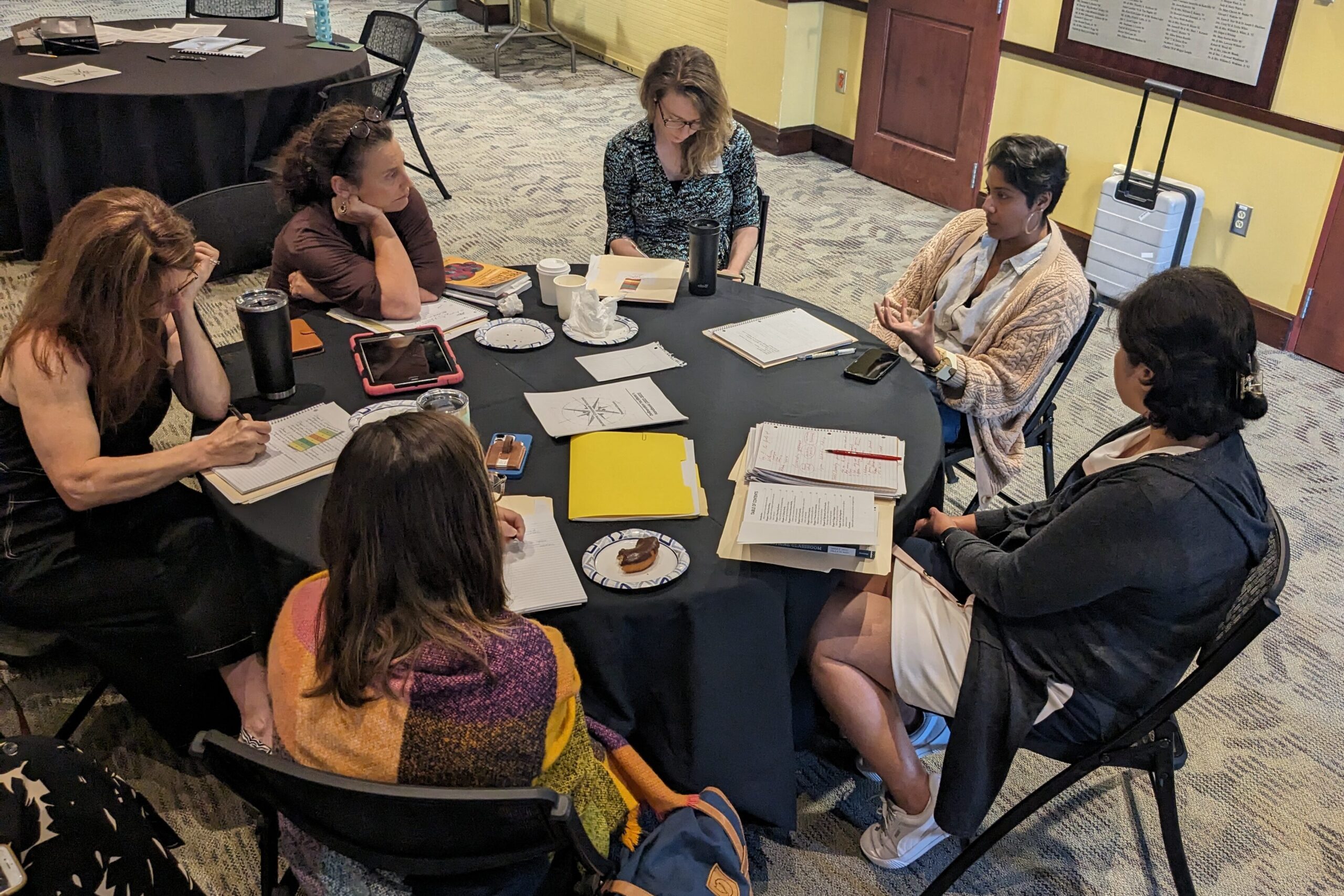
On August 10th, we kicked off our third installment of the Deliberative Pedagogy (DeeP) Faculty Collaborative with our annual DeeP Collaborative Orientation Workshop. This year’s cohort brings together 22 new faculty collaborators – a record number – who specialize in over 15 different academic disciplines, including anthropology, biology, business administration, communication studies, dance, economics, education, English, environmental studies, German studies, philosophy, political science, public health, peace and conflict studies, and sociology.
They also come from 13 different institutions, including Alamance Community College, Birmingham Southern College, Davidson College, Guilford College, Hendrix College, Lenoir-Rhyne University, Macalester College, Rollins College, Sewanee: The University of the South, Spelman College, Swarthmore College, UNC Charlotte, and Vassar College.
The goals of this workshop were to introduce our new Collaborative members to the key principles and practices of deliberative pedagogy, to build community among the cohort members—who will be working together over the coming academic year—and to begin mapping out their goals for the fall semester, during which they will explore how they will apply deliberative pedagogy to their future courses.
DCI Faculty Director Dr. Graham Bullock led the workshop, using both active learning and deliberative strategies to introduce the motivations for using deliberative pedagogy practices, the most relevant concepts and frameworks, specific deliberative teaching methods and tools, and case studies of deliberation-involved courses.

What is deliberative pedagogy? In short, deliberative pedagogy is a teaching practice that involves the use of structured deliberative activities to teach learners how to express different viewpoints about an issue or approaches to a problem, how to evaluate these viewpoints or approaches critically, and how to identify both areas of agreement and disagreement through the course of their deliberative discussions.
The key to practicing deliberative pedagogy well is to setup deliberations in the classroom so that they include multiple viewpoints on the issue at hand, allow all voices to be heard, and promote the assessment of arguments for and against the variety of viewpoints on the table. One way to do so is by introducing conversation agreements, or ground rules for good discursive practices. Another way is to have a facilitator present who can ensure the deliberation represents multiple viewpoints and voices. (Want to learn how to become a trained facilitator for deliberative events in OR out of the classroom? Learn more about our upcoming Deliberation Facilitator Training Program here!)
Deliberative pedagogy is also connected to the concept of deliberative democracy, a type of democratic engagement in which reason-giving – broadly-defined – is used as a means for citizens to make progress on practical issues facing their community.
Some of the lively discussions among our faculty cohort members focused on how deliberative pedagogy can be employed beyond courses that focus explicitly on public policy, including courses in the arts and the sciences. Groups also discussed how deliberative pedagogy can be a form of inclusive pedagogy and how faculty can navigate the apparent tension between affirming our lived experiences as individuals while assessing reasons for and against policy decisions that impact those experiences.
Others discussed whether or in what circumstances instructors should remain neutral during debates about normative issues that do not have straightforward answers and about which there can be reasonable disagreement among deliberators. None of these questions have easy answers, but we look forward to diving deeper with our ’23-’24 DeeP Collaborative cohort on these and other important topics in the coming year. Look out for blog posts from this year’s participants in the spring, once they have begun applying what they have taken from our interactive learning sessions in the fall to their various teaching contexts.

